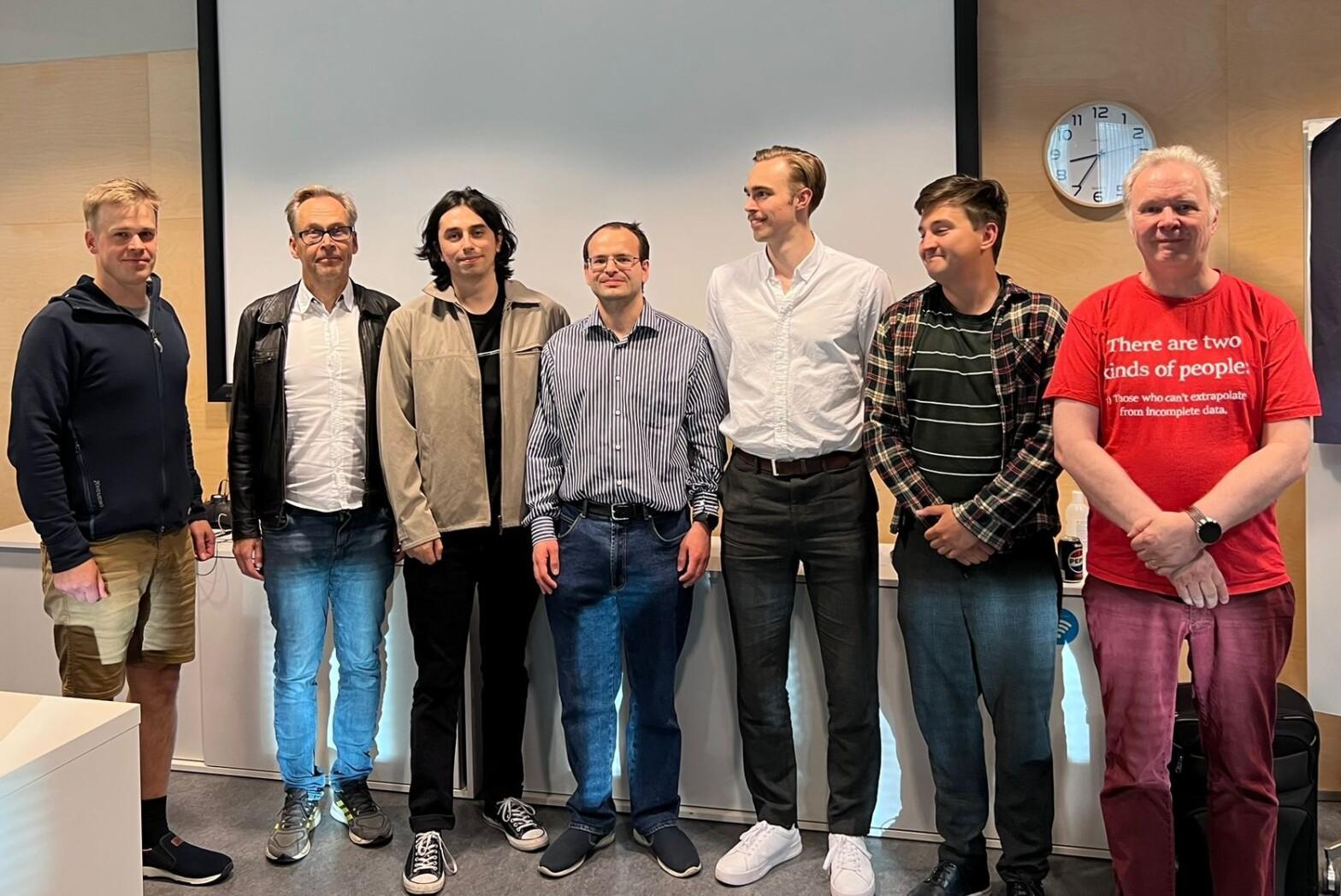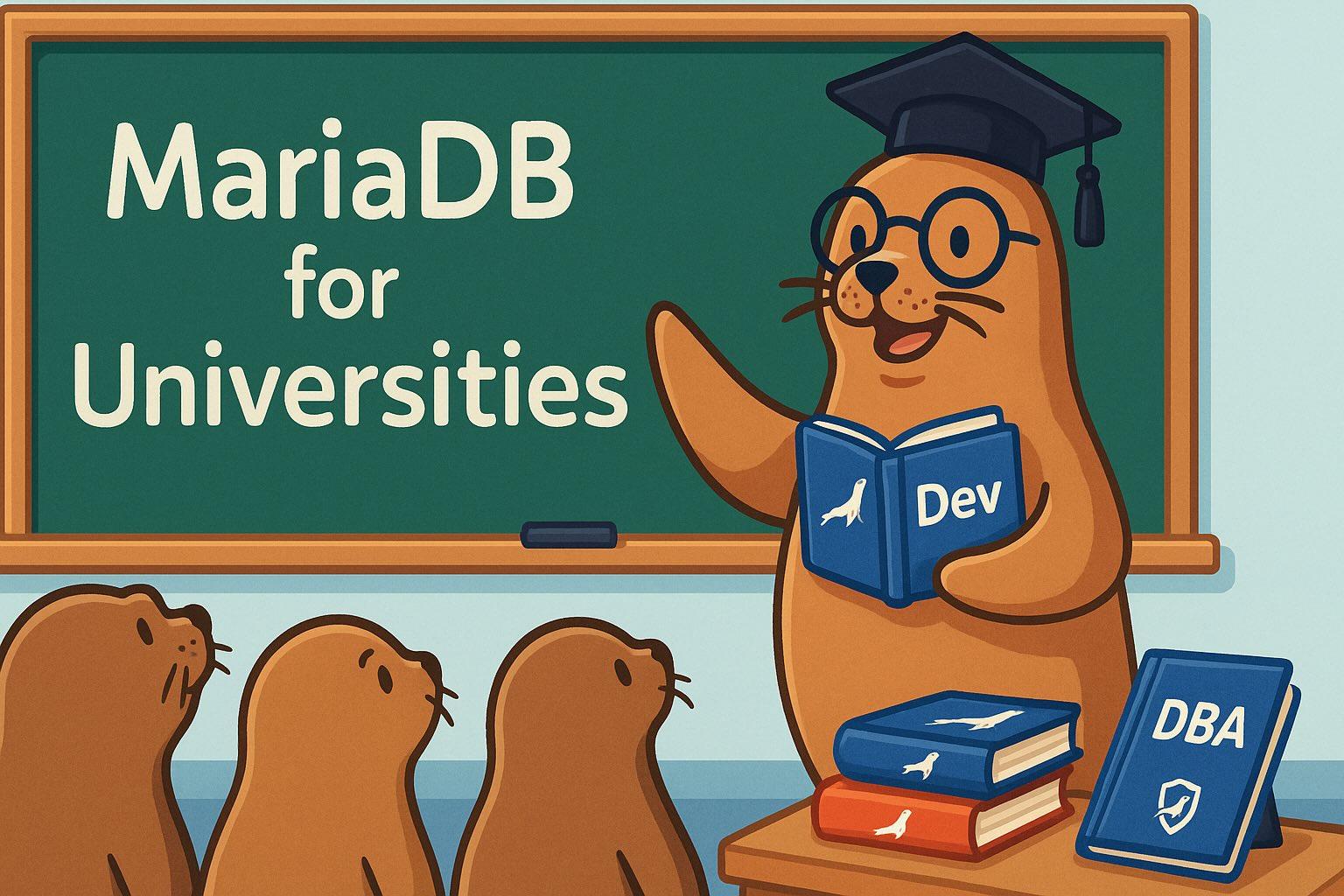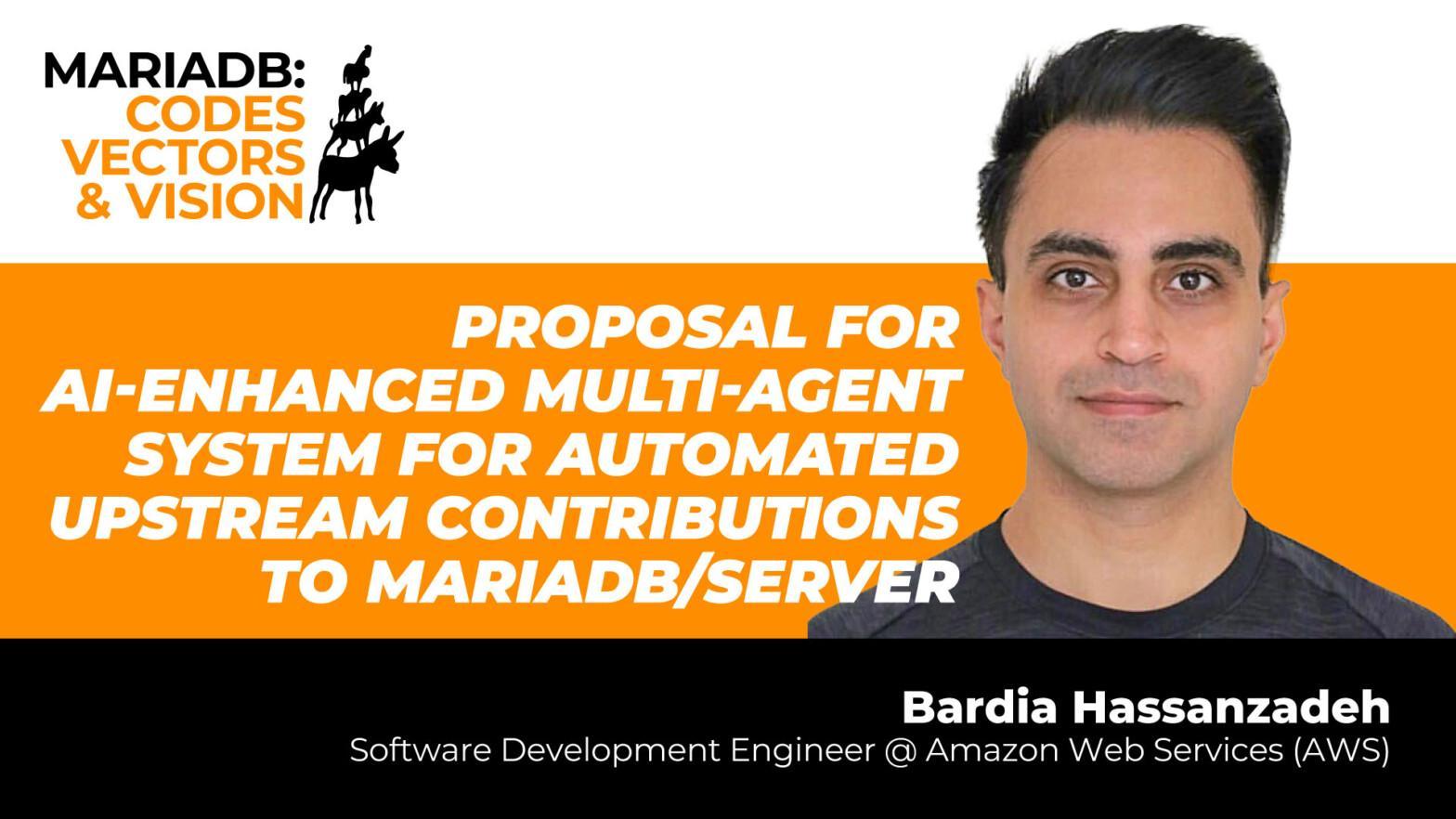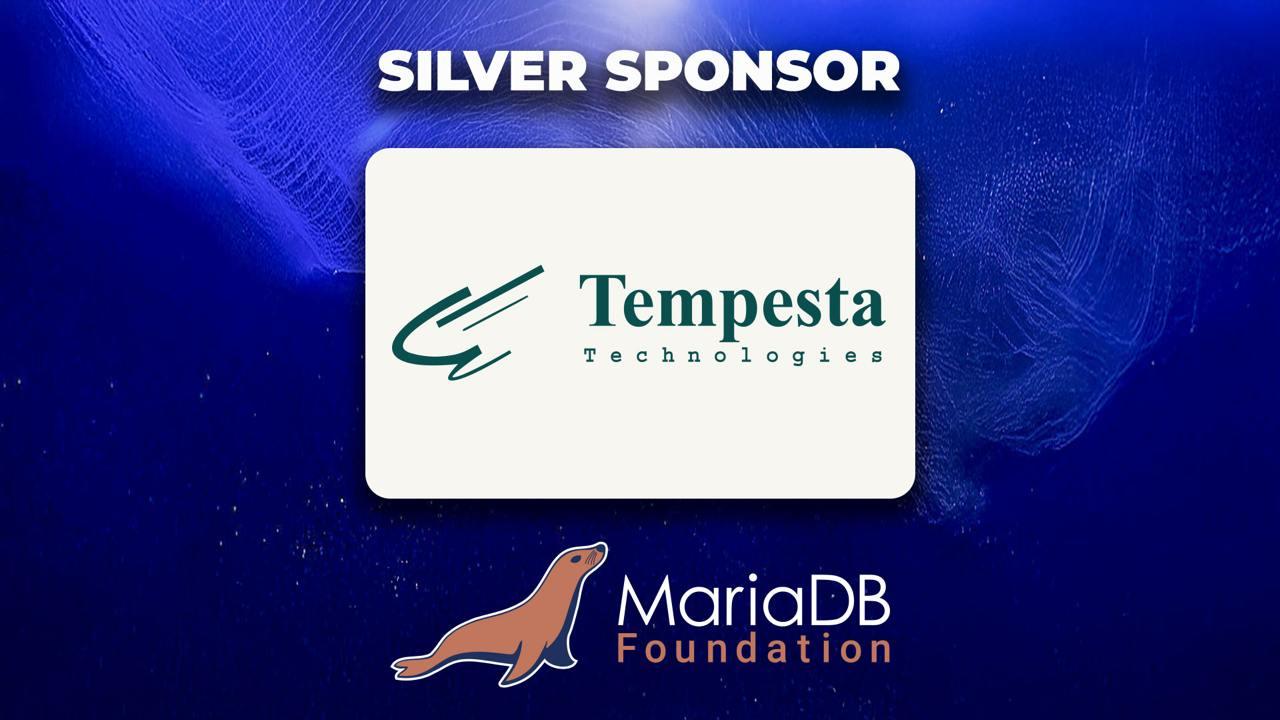Category Archives: Community
The Helsinki Python meetup on Tuesday 27th May was hosted by MariaDB Foundation with nearly 100 participants of the 2600+ members of the Helsinki python meetup community.
In addition to being a successful opportunity to mingle and learn python together, we finally got to announce the winners of the MariaDB AI RAG Hackathon! (winners posing in the feature photo of the blog)
Presentations: AI and MariaDB
We welcomed participants of the meetup with a brief introduction to what MariaDB is as a software, and the sponsoring parties: MariaDB Foundation, Open Ocean Capital and verkkokauppa.com.
…
Continue reading “Helsinki Python meetup with AI RAG and MariaDB Foundation”
We have long had a vision: that learning relational databases with MariaDB should be accessible to everyone — students, educators, and self-learners alike. Today, MariaDB Foundation and MariaDB plc together take a major step forward in realizing that vision.
A Shared Effort for Open Education
MariaDB plc has generously released substantial professional training materials for academic and other non-commercial usage under an open source license. These materials are now publicly available on our GitHub repository at https://github.com/MariaDB/mariadb-for-universities/, and also accessible in a reader-friendly format at https://uni.mariadb.org.
The materials are structured to guide users from beginner to intermediate levels, and are intended for incorporation into university courses or for self-paced study.
…
Continue reading “Releasing MariaDB for Universities: Lecture Materials for a New Generation”
We at MariaDB Foundation are thrilled to see Amazon at the forefront of applying artificial intelligence to open source contributions — with MariaDB as their pilot.
At the May 6th MariaDB meetup in Bremen, Bardia Hassanzadeh, PhD, presented the Upstream Pilot tool: an AI-based assistant designed to help developers identify, analyze, and resolve open issues in MariaDB more effectively.
This initiative is the most promising we’ve seen for improving the open source contribution process. Bardia and Hugo Wen of Amazon gave us a preview last week and we were already very impressed.
…
Continue reading “Amazon’s AI-agents for MariaDB Contributions”
I suppose not all of my readers have a first hand (or even second hand) experience of the girls-night-in. So let me shed some light on this sacred ritual of tea, sympathy and soul-baring conversation that zigzags from the ridiculous to the profound and back again in under 30 seconds.
There a few eternal mysteries that always seem to come up –
Like:
“Why do I have nothing to wear when my wardrobe is clearly full of clothes?”
And:
“Why does cat food smell weirdly delicious?”
(Okay, I do know the answer to that one: stop crash-dieting already!
…
Continue reading “The Queen, the contributions and the wardrobe”
We are delighted to welcome Tempesta Technologies as a Silver Sponsor of the MariaDB Foundation!
Tempesta Technologies is the developer of Tempesta FW, an open-source hybrid of a web accelerator and a multi-layer firewall. Engineered for maximum efficiency, Tempesta FW is tightly integrated with the Linux TCP/IP stack and leverages cutting-edge technologies to deliver exceptional web application performance. It provides robust protection against DDoS and web attacks while ensuring smooth, high-speed operation under normal conditions.
This partnership underscores MariaDB Server’s continued commitment to performance and efficiency—not just in terms of database speed and scalability, but across the broader ecosystem that powers modern web infrastructure.
…
Continue reading “Tempesta Technologies Becomes Silver Sponsor of MariaDB Foundation”
March was a busy month in the world of MariaDB!
Let’s explore the progress through the lens of the Six Goals for 2025, introduced in January.
Board Meeting 1/2025: New Executive Chairman, new CEO
But before we dive into that, let me briefly highlight developments from the two most recent Board Meetings. In the Report from the Board blog post about the late February meeting, I already noted a key organisational change:
- I am transitioning my role to be Executive Chairman, providing the overall leadership vision for the transformation of the Foundation and expanding the Foundation’s presence and influence in the industry.
…
Continue reading “This month in MariaDB Foundation: Mar 2025”
The following post was written by Stefano Petrilli, who contributed UUIDv4 and UUIDv7 implementations to MariaDB. Thank you, Stefano!
The original version of the Universal Unique IDentifiers (UUID), which is now known as UUIDv1, made his first appearance in the 1980s. The most interesting guarantee that they provide is the generation of IDs that are always unique across space and time.
To comply with this promise, it uses a combination of three elements:
- The node, which is a field that identifies the machine that generated the UUID.
…
At MariaDB Day in February in Brussels, VP Engineering Vicențiu Ciurbaru delivered an inspiring presentation titled “Launch Your Open Source Career: First Steps in Contributing to MariaDB.”
In the spirit of the recent positive stats on new contributions to MariaDB, let me recap Vicentiu’s tips for anyone looking to make their first contribution.
Contributing to MariaDB is not only about writing code—it’s about joining a vibrant community where every contribution, big or small, drives innovation. We hope newcomers can see a tangible path to getting involved.
How to start contributing?
…






